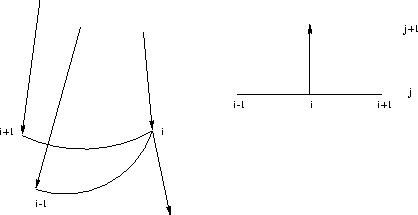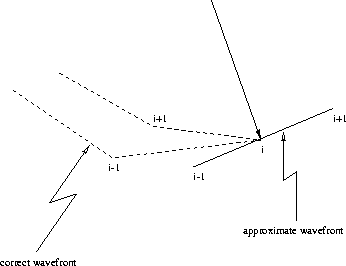|
cusp
Figure 4 The centered finite-difference representation of the derivative along the wavefront cannot be used at the cusps. These points represent discontinuities in the derivative, and need to be treated separately. |  |
One possible solution for the boundaries is to make a local approximation of the wavefront. Instead of considering the actual points on the wavefront, we can create an approximate wavefront that is locally orthogonal to the ray arriving at the cusp point, as depicted in Figure 5. We can then pick an appropriate number of points (two in 2-D or four in 3-D) on this approximate wavefront, and use the HWT scheme without any change. A new search for the cusp points is then needed on the new wavefront before we can proceed any further.
|
cusp
Figure 4 The centered finite-difference representation of the derivative along the wavefront cannot be used at the cusps. These points represent discontinuities in the derivative, and need to be treated separately. |  |
|
hrt
Figure 5 The centered finite-difference representation of the derivative along the wavefront cannot be used at the cusps. Instead, we can use a local approximation of the wavefront as a plane locally orthogonal to the ray arriving at the cusp. |  |